Like many an intern before me, I’m up in a tree.
I can hear Mary–friend of the fruit trees–down below; I can almost feel her cringing as I step on a branch that creaks beneath my clunky boots. But the cluster of apples is just in reach…I snag it, snipping two of the three grape-sized baby fruits and letting the sturdiest remain. Mary and the branch are equally relieved as I shift my weight elsewhere and continue to unburden the mother tree (with more careful footwork).
It’s cathartic to move with instinct as I snip away fruit. Observe, assess, act. No ruminating on the relative strengths and weaknesses of the fledgling apples in each cluster; no pausing for self-doubt. It feels like I’m caretaking myself by proxy––giving the momma tree what I can’t often give myself: permission to let things go and focus on the most “fruitful” possibilities. It feels as good as wiping a tedious meeting off the schedule. I’m positively invigorated.
Have I identified the things in my life to let go of? Absolutely not. Or at least, not entirely. Does this practice make me feel like I could? Maybe. A maybe is better than nothing. If my instincts are calibrated here, there’s no reason why they couldn’t be elsewhere in my life.
On a different branch, another intern is pruning away as Mary repeats the two guiding principles of fruit-tree care: air and light, light and air. With those two things, trees can thrive. Without them, you’re inviting fungal disease onto the scene.
The fact that we can learn lessons from nature is so unbelievably obvious as to be trite. This doesn’t make it any less impactful when you’re struck with one so clear and grounded.
In Mary’s teachings I hear echoes of my own mother telling me how shame can’t survive in the sunshine; how airing out your fears gives them less power. Over centuries of selective breeding and human manipulation, fruit trees have become a bit more like us: more removed from our natural resiliency. Left to our own devices, like the poor fruit trees, we tend to overproduce and overgrow until we enshrine ourselves in shadows and stagnation. Sometimes fungus, too, but let’s not linger on that image. We’ve been bred and trained in the way of “more is more” and we’re overburdened by the sickly fruits of our labor. We’re surrounded by the rot of everything we just couldn’t hold, decaying in a pile beneath us, fermenting into next year’s troubles. We’re in need of light and air; of intentional simplicity and thoughtful care.
To me, that is what the Songaia internship has meant. Instead of waking up to a swirl of deadlines and projects, I wake up to a view of the forest, a slow cup of tea, and a day full of plant- and people-care. My work is simple and I’m supported in keeping it that way. There are few places for me to hide away, so I’m forced to face the light and air and living in community, even when it means showing my flaws, my fears, and my imperfections. I still tend toward over-complicating and getting lost in guilt and shadow: Am I producing enough? But I’ve seen with my own eyes the difference between the sad, shriveled fruit of a tree trying to do too much and the robust fruit and disease-resistance of those that have been thinned and pruned.
This summer has been a hard-prune for me, and it won’t be the last. Orchard-keeping is a practice of care over many seasons and years, and Songaia has been critical in my re-shaping. I feel immense gratitude for the Songaians (human and vegetable) who have invited me into the work of transformation at nature’s pace. Next year, catch me fungus-free, thriving, and fearlessly trusting my instincts. Here’s hoping.

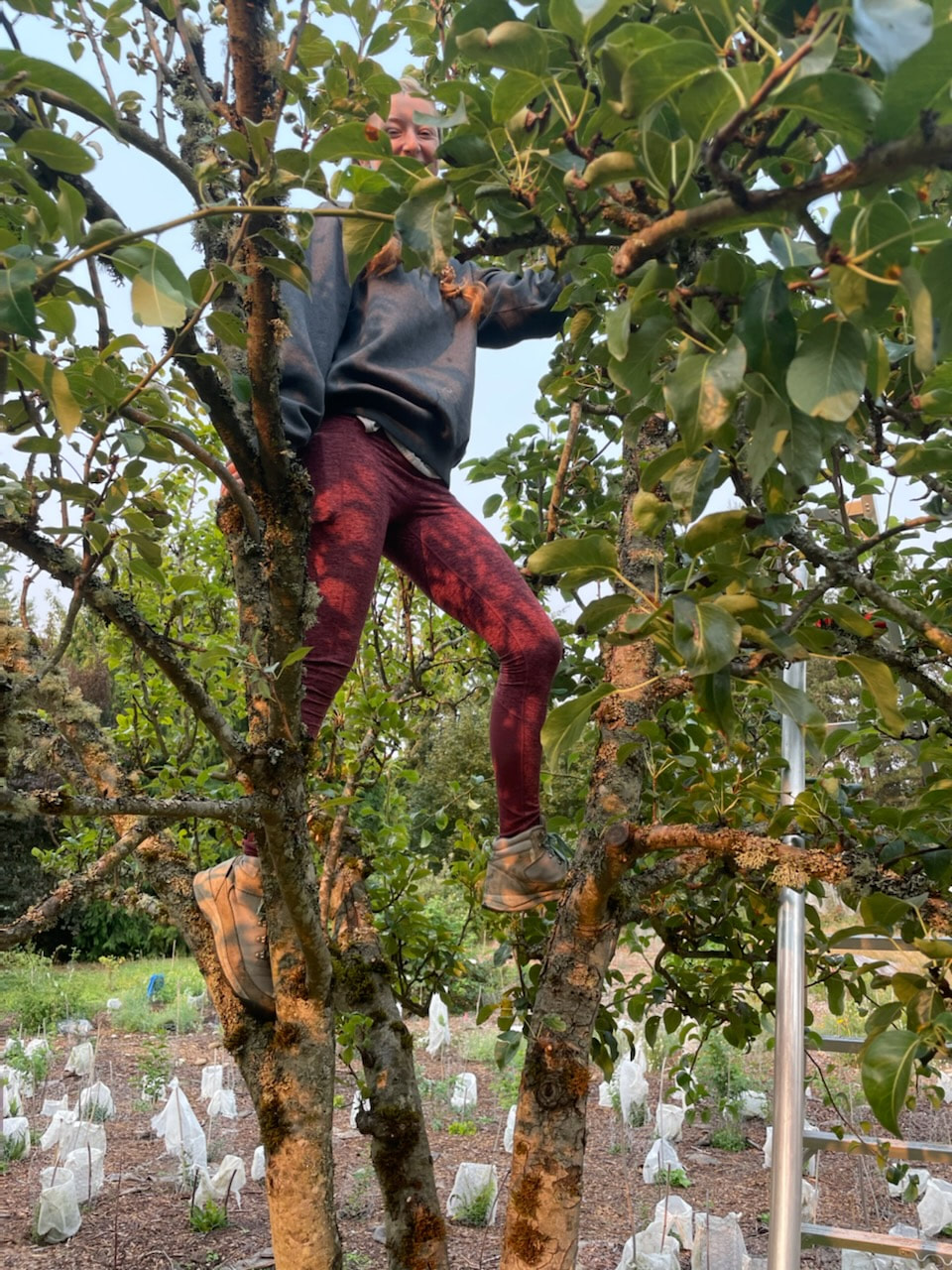
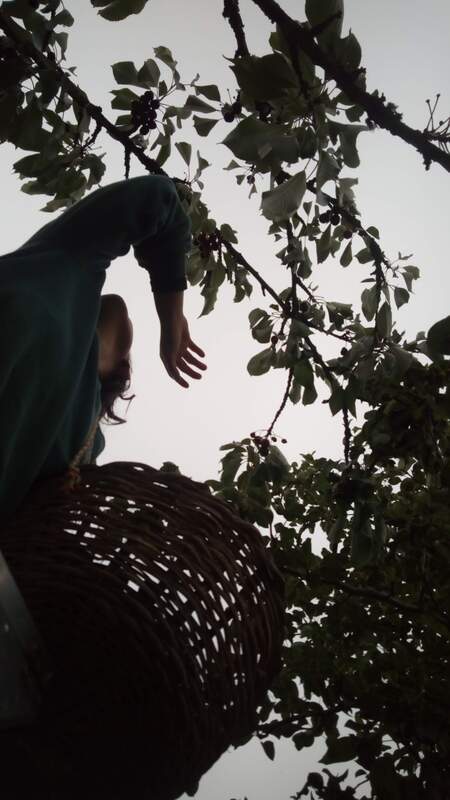
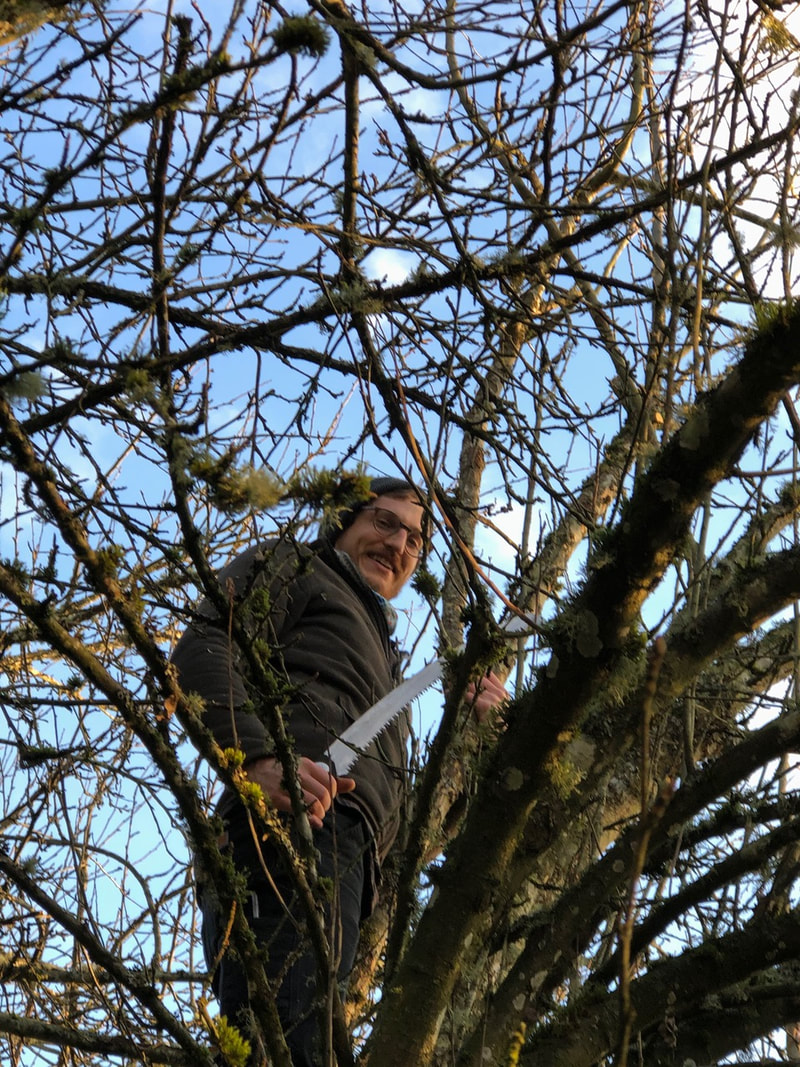
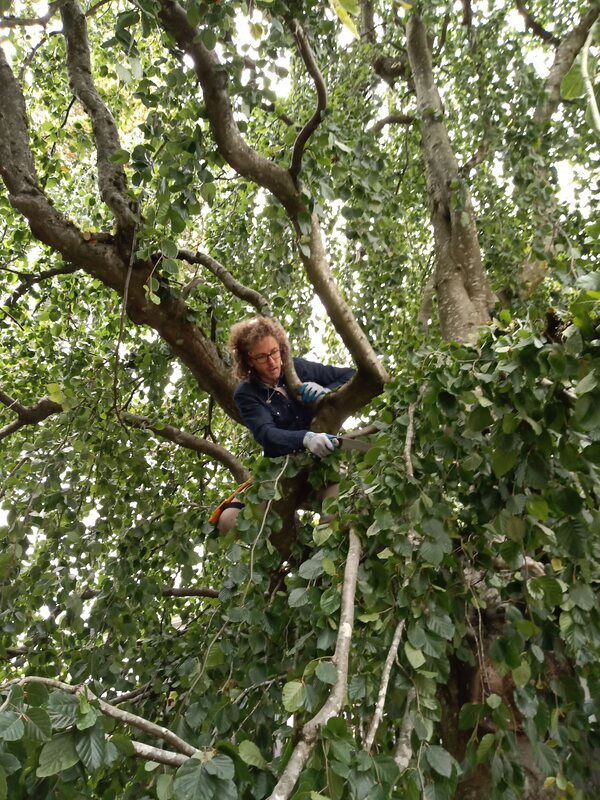
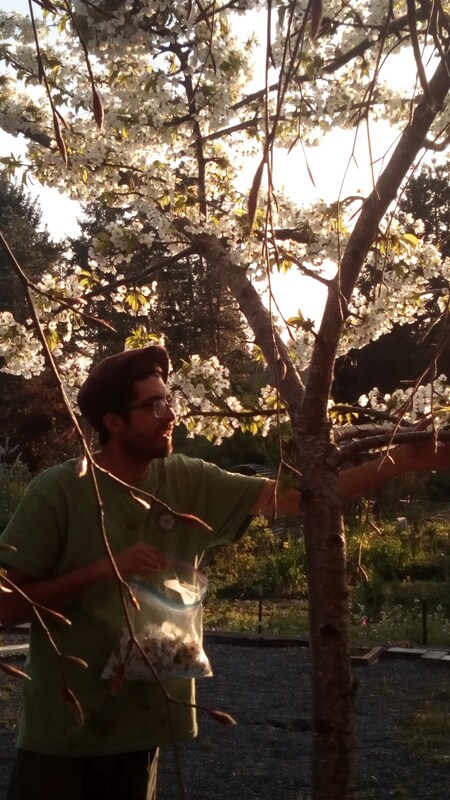
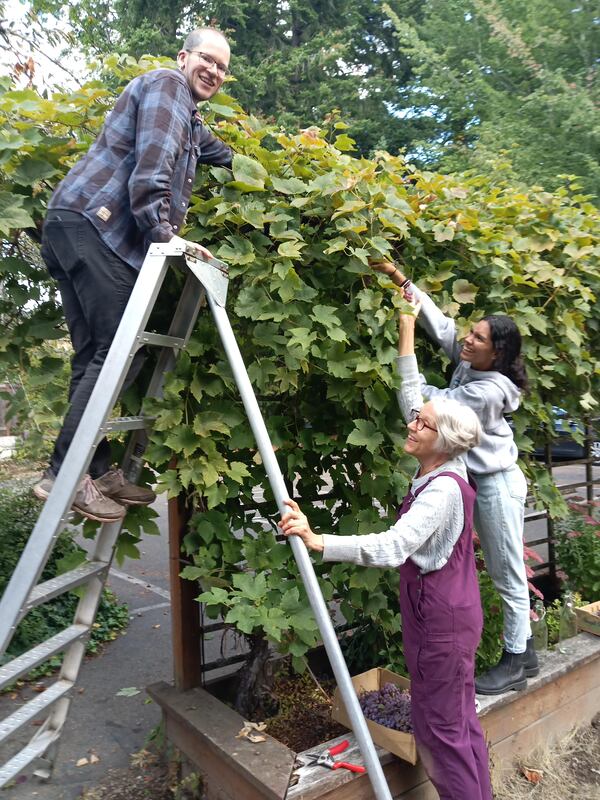
 RSS Feed
RSS Feed